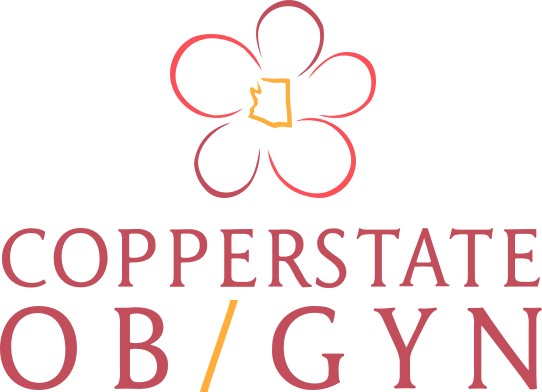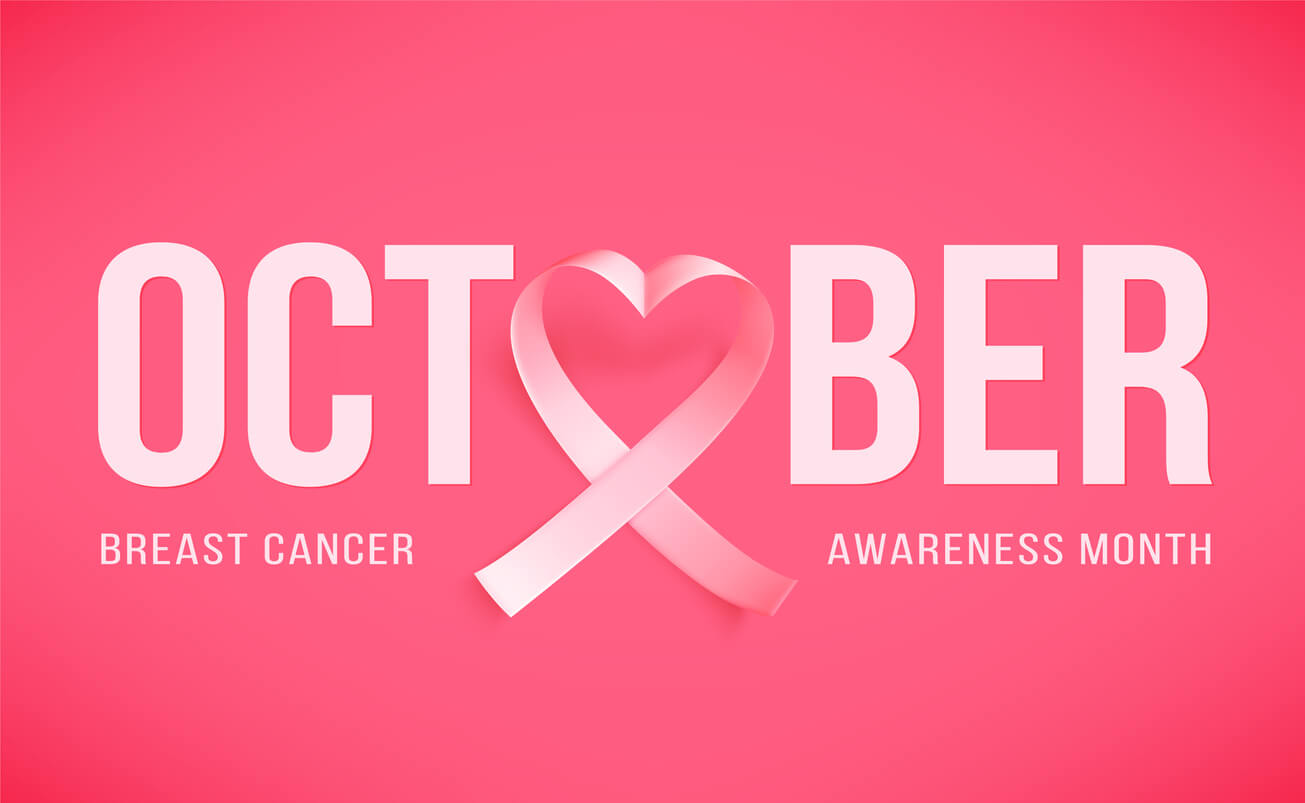Every October we all have an opportunity to come together to raise awareness and funds to help fight a disease that affects 1 in 8 women in the US alone.
Breast cancer.
October is Breast Cancer Awareness Month
Nearly everyone has been impacted by breast cancer, whether personally or through someone they love. Breast cancer is the most common cancer diagnosis among American women. It is projected that in 2021 approximately 30% of newly diagnosed cancers in women will be breast cancer.
While a family history of breast cancer can increase the risk of getting this disease, nearly 85% of women diagnosed each year have no family history.
It’s important to know the signs and symptoms of breast cancer, practice breast self-awareness (become familiar with the shape, size, etc of your breasts), get annual mammograms (for women aged 40 and older), and get a regular clinical breast exam by your physician or health care provider.
> Call 520.721.8605 today to schedule your next appointment with Copperstate
What Does the Breast Cancer Ribbon Symbolize?
Throughout October it’s not uncommon to see people wearing the pink breast cancer ribbon on their clothing or posting it on social media. This ribbon is the universal sign of breast cancer and it symbolizes unity, solidarity, and the desire to bring more awareness and resources to fight this disease.
Wearing or sharing the pink ribbon is a way to show support for those battling breast cancer. It symbolizes hope for a brighter future.
Ways to Show Your Support During Breast Cancer Awareness Month
There are several ways you can contribute to the fight against breast cancer, we’ve listed a few below.
Donate
Monetary donations help women access screening, education, outreach, and support.
- Screening and early detection may dramatically increase a person’s odds of survival and it’s important for all women to have access to the care they need to detect any problems as early as possible.
- Support for people with breast cancer and their families includes support groups, retreats, and the support and guidance women need to heal.
- Education and outreach provide women with resources and information needed to reduce their risk of breast cancer and increase odds of early detection.
Share Your Story
If you have been affected by breast cancer, whether personally or through someone you love, sharing your story provides hope, information, and raises awareness. Post your story on social media or speak with others about your journey to help those currently battling this disease – and their loved ones – know they are not alone.
Host a Fundraiser
Funds are always needed for research and resources. Host a fundraiser within your local community, at work, or at school to donate funds to the breast cancer charity or organization of your choice. In the age of coronavirus there are a myriad of ways to do this virtually if getting people together in person isn’t realistic.
Raise Awareness on Social Media
Show your support for those affected by this disease by changing your social media profile picture to a pink ribbon. Share your story on your own social media pages or on the pages of organizations like the National Breast Cancer Foundation or the Susan G. Komen Foundation.
Volunteer
Donating your time to a breast cancer organization of your choice is a valuable way to help in the fight against breast cancer. There are dozens of charities and funds that need your support. A Google search for ‘volunteer opportunities for breast cancer’ will provide you with many choices in your geographic area and beyond.
Get a Breast Cancer Test
Regular breast cancer screenings are essential, as they can detect signs of cancer even before there are any signs or symptoms. Breast cancer screenings increase chances of surviving this disease should you be diagnosed.
Routine screening is recommended for women beginning at age 40. If there is a history of breast cancer in your family or you are at greater risk, talk to your doctor about your recommended screening protocol. A clinical breast cancer exam is recommended every 1-3 years for women as early as age 25 and annually beginning at age 40. There are several types of breast cancer tests:
Mammograms
A mammogram is generally considered the most effective way to detect breast cancer in most women. It helps find cancers at an early stage, which may increase chances of survival. Mammograms are also used as a follow-up test following any abnormal or questionable findings from a clinical breast exam or self-examination.
Breast MRI
A breast MRI may be recommended for women at higher risk for breast cancer or following a mammogram that indicates the possible presence of cancer. As it is a more invasive test, it is typically not recommended for women with average risk. It may be recommended for women with a genetic mutation, such as BRCA1 or BRCA2, or if there is a strong family history of breast cancer.
Breast Ultrasound
This non-invasive test is often used as a follow-up to an abnormal finding on a mammogram, clinical breast exam, or MRI. It may also be used if a needle biopsy is needed. Typically, however, a breast ultrasound is not recommended as the sole breast cancer screening tool; it is almost always utilized in conjunction with other screening methods.
The Importance of Early Detection
While there has been an ongoing debate about the usefulness of breast self-examination, it is still important to practice breast self-awareness in the fight against breast cancer, especially in conjunction with routine clinical examinations.
By becoming familiar with your breasts – what they look and feel like – you have a better chance of detecting something new or unusual that may need further screening.
Breast self-awareness, annual clinical breast exams, and routine mammograms are the best way for women at average risk of breast cancer to detect any problems as early as possible. If you have any concerns or questions about your risk of breast cancer, be sure to discuss them with your doctor or gynecologist.
Sources:
https://www.breastcancer.org/symptoms/understand_bc/statistics
https://www.komen.org/breast-cancer/screening/
https://www.breastcancer.org/symptoms/testing/types/self_exam

